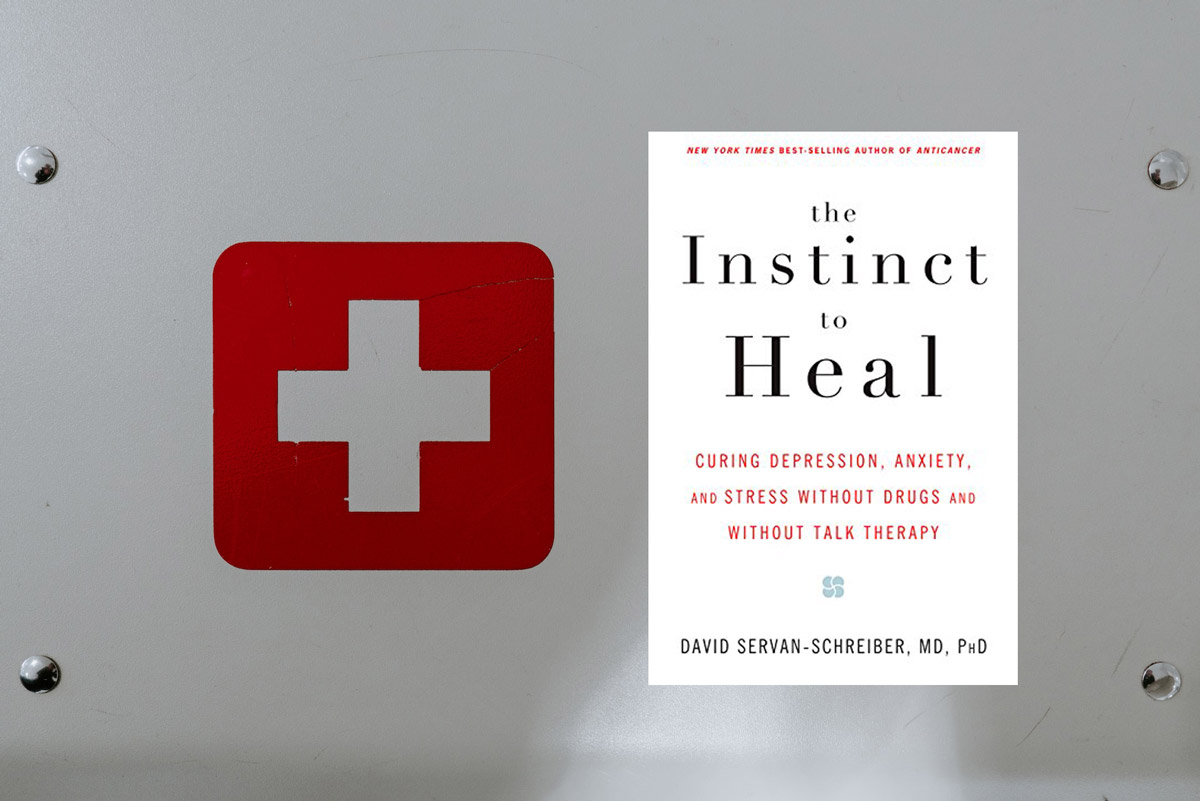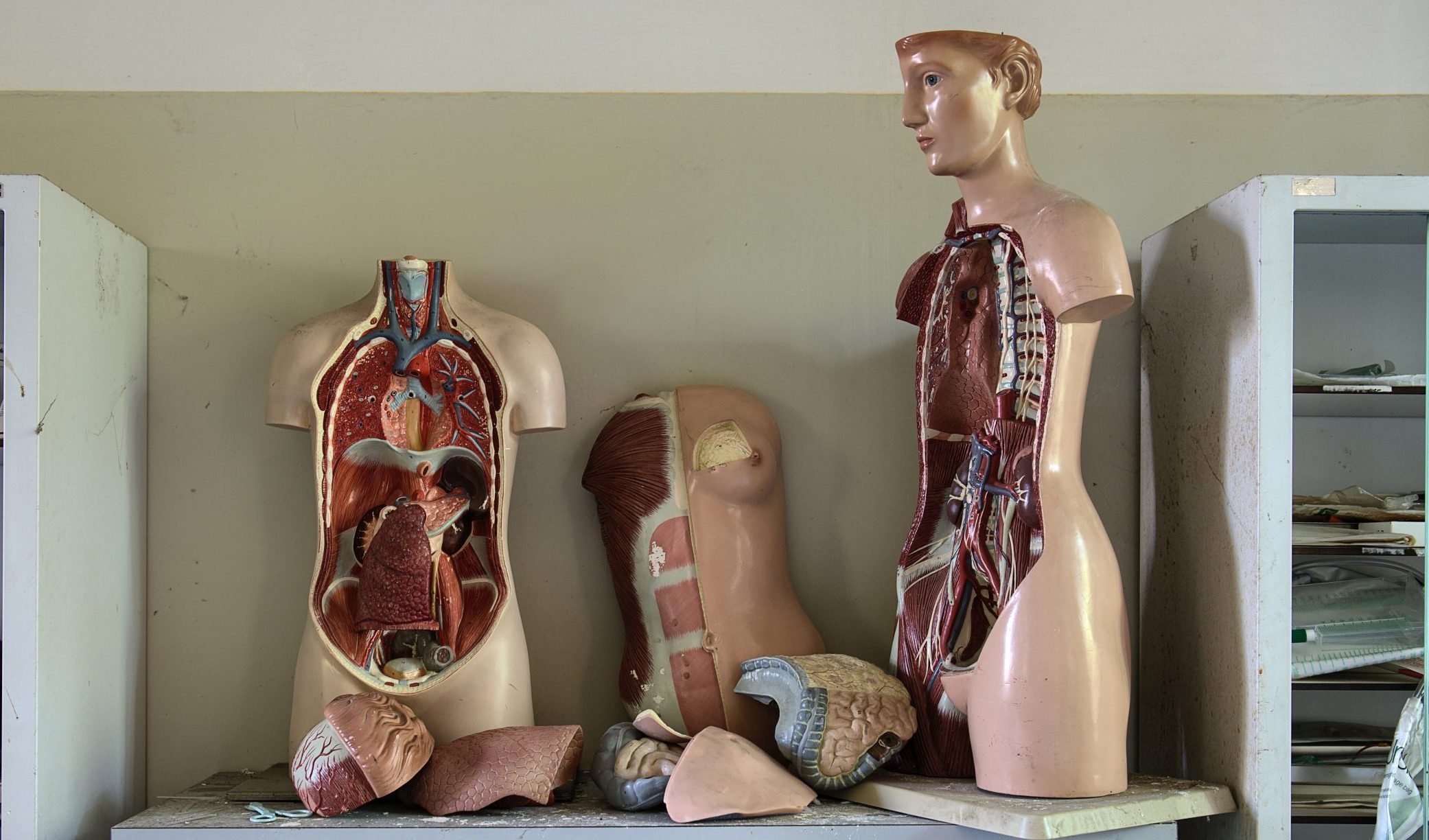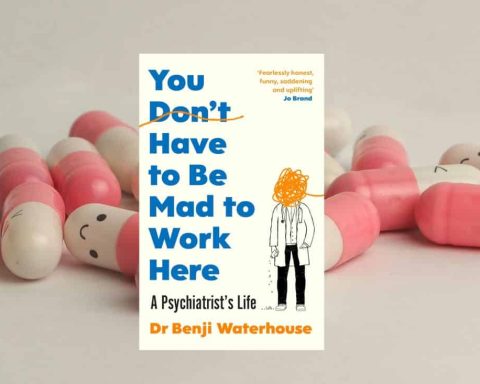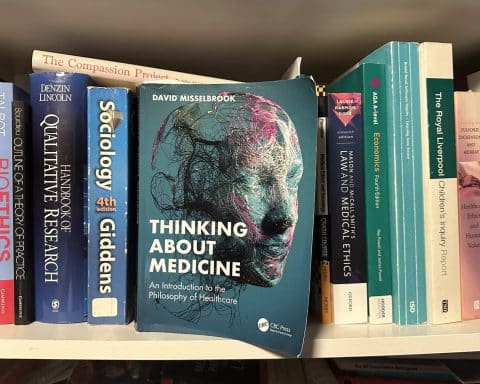Elke Hausmann is a Salaried GP in Derby.
This must be a first — a book review in English for a French book that I have read in the German translation. First of all, don’t be put off by the title, it is a complete misnomer. This book is not about any ‘instinct’, it is as much about physical illness (morbidity and mortality) as mental health, and David Servan-Schreiber supports both drug treatments and talking therapy!
The German title, ‘Die Neue Medizin der Emotionen’ (‘The New Medicine of Emotions’), is more to the point, unfortunately with essentially the same terrible subtitle. This almost 20-year-old book has been sitting on my bookshelf unread for at least a decade, and what made me pick it up is my recent interest in the history of emotions (see my latest book review1). So I probably wouldn’t have picked up the English version!
“… the overall impression is that everything in here is still very relevant today … “
David Servan-Schreiber was a French physician, neuroscientist, psychiatrist, and author. He sadly died in 2011 aged 50 from a malignant brain tumour. This book has been written for the general public, but it has an extensive reference section and bibliography. His academic credentials are not in doubt.
His starting point is that deep within the brain there is the ’emotional brain’ (the limbic system), which is in both structure and in terms of its cells and biochemical properties distinct from the neocortex (or cognitive brain). The emotional brain functions independently of the neocortex — language as well as perception only have a limited influence on it. In turn, this ’emotional brain’ has a direct impact on the body’s physiology, including blood pressure, hormones, digestion, and the immune system. Emotional problems (and their bodily effects) can often be better addressed through methods that influence the emotional brain via the body, rather than rationally via the thinking brain.
He draws on academic and clinical research to present methods that have been shown to be effective. Yes, there are a couple of paragraphs that seem dated or rooted in French culture that sound a bit, well, ‘French’ to the German (or I imagine the English) reader, but the overall impression is that everything in here is still very relevant today — some maybe even more so than when he first wrote it.
In many ways, we have come a long way. For example, eye movement desensitisation and reprocessing (EMDR) therapy, which was then still regarded as very esoteric, is now generally accepted as a treatment for trauma, which Improving Access to Psychological Therapies (IAPT) services are offering to our patients. On the other hand, omega-3 for the treatment of depression is not recommended by the NHS. The chapter on ’emotional communication’ describes much of what recent medical graduates will hopefully have come across in their communication training, on which there is a much greater emphasis in medical training today than 20 years ago. It is now generally accepted that loneliness can literally kill people, and many societies including England are taking steps to counteract that.
“Read it critically, look into how research in the past 20 years has furthered our understanding … “
This is a modern manual on how to live well. Servan-Schreiber summarises his advice in the last chapter, which I will paraphrase (rather than quote in German!).
The first step is to control our inner life. Everybody develops strategies of how to deal with difficult phases in life, which all too often involve cigarettes, chocolate, ice cream, beer, whisky, or TV (today he would probably reference gambling). Once medicine gets involved, tranquillisers (maybe more in France and/or more so in the past) and antidepressants get added. If ‘consulting’ friends rather than a doctor, this might instead be cannabis, cocaine, or heroin. The first treatment is to help a patient rediscover how to regulate their heartbeat and create a state of coherence (further explained in one of the first chapters). Then, if there are any difficult occurrences in the past that still cause burdensome emotions in the present, they could be addressed via EMDR.
Next, one has to become aware of any complicated affective relationships, in our personal (close family) or professional life (colleagues and superiors) — these can be improved by applying the principles of violence-free emotional communication. Having harmonious relationships will have a ripple effect on health and wellbeing. He advises changing the diet — his concrete advice is achieving a balanced intake of omega-3 and omega-6 fats (which is not generally accepted today — however his wider emphasis on the Mediterranean diet is unchallenged), and exercise for 20 minutes, three times a week — run if you can, but walking if you can’t is good enough, and it is now recognised that the people who most benefit from very moderate exercise are the ones who previously have done none.2 Aligning our biological clock by getting a lamp that simulates the sunrise is beneficial not just for people who suffer from seasonal affective disorder, and he recommends acupuncture for people who beyond emotional and physical problems particularly have pain. Last but not least is the importance of finding a role within the wider community — if we are cut off from others, we are strangers in the world and to ourselves.
What title would I give to this book? I think I would stick with ‘The Medicine of Emotions’. My subtitle would be: ‘Making Life Better — for Yourself and Others’. Read it critically, look into how research in the past 20 years has furthered our understanding to support or refute the core ideas, and then put theory into practice.
Featured book: David Servan-Schreiber, The Instinct to Heal: Curing Depression, Anxiety and Stress Without Drugs and Without Talk Therapy, Rodale Press, 2004, HB, 288pp, £19.52, 978-1579549022
References
1. Hausmann E. Books: The History of Emotions: A Very Short Introduction. Br J Gen Pract 2024; DOI: https://doi.org/10.3399/bjgp24X736329.
2. Department of Health and Social Care. UK Chief Medical Officers’ physical activity guidelines. 2019. https://assets.publishing.service.gov.uk/media/5d839543ed915d52428dc134/uk-chief-medical-officers-physical-activity-guidelines.pdf (accessed 12 Jan 2024).
Featured photo by Claudio Schwarz on Unsplash.









If anyone wants to read a more recent and scientific article on the theory of constructed emotion, I have come across this article since writing the above review:
A new science of emotion: implications for functional neurological disorder, by Johannes Jungilligens et al, Brain 2022: 145; 2648-2663
https://pubmed.ncbi.nlm.nih.gov/35653495/
This current perspective on how the construction of emotion at the level of the brain works (and can go wrong) goes very well with a lot of what Servan-Schreiber wrote years ago!